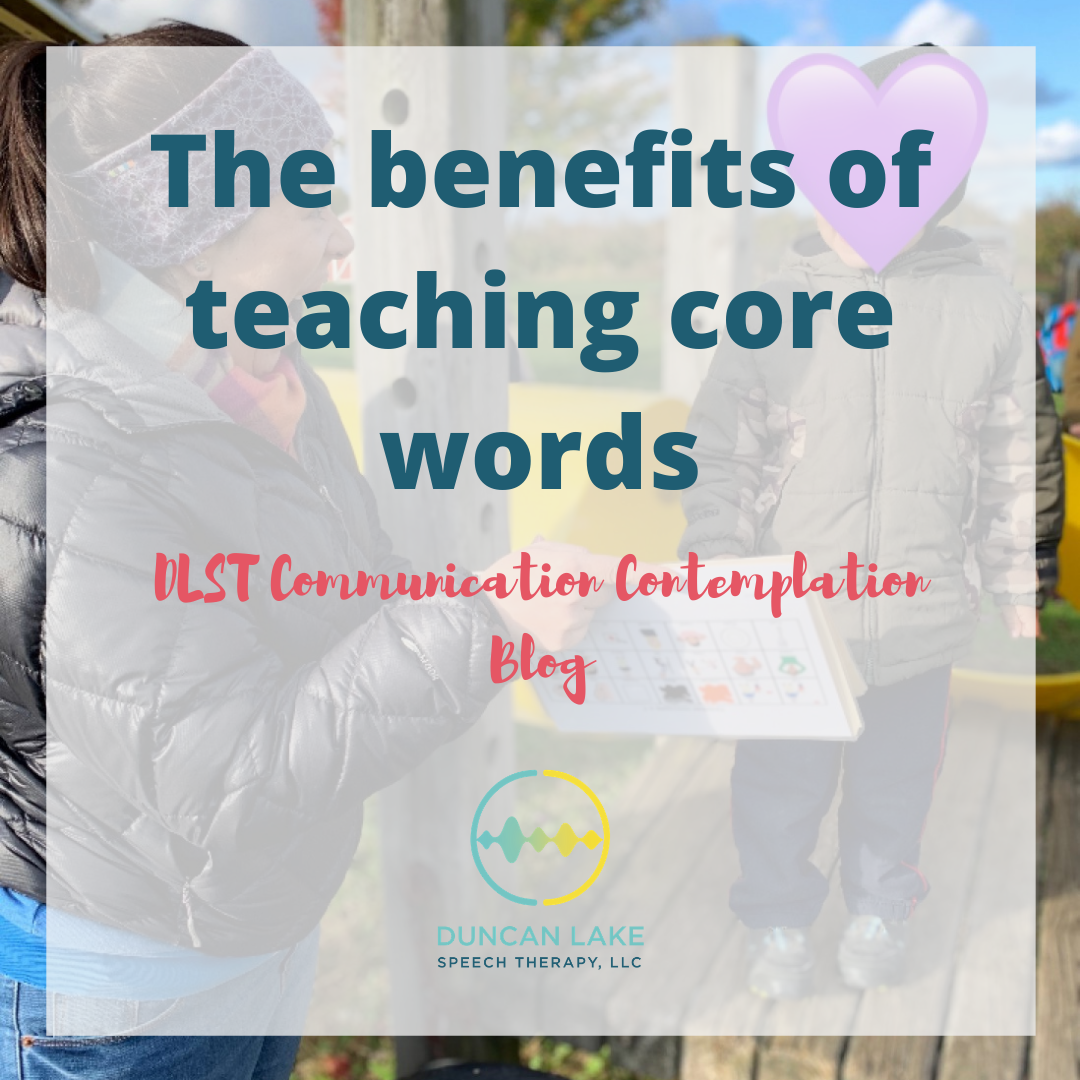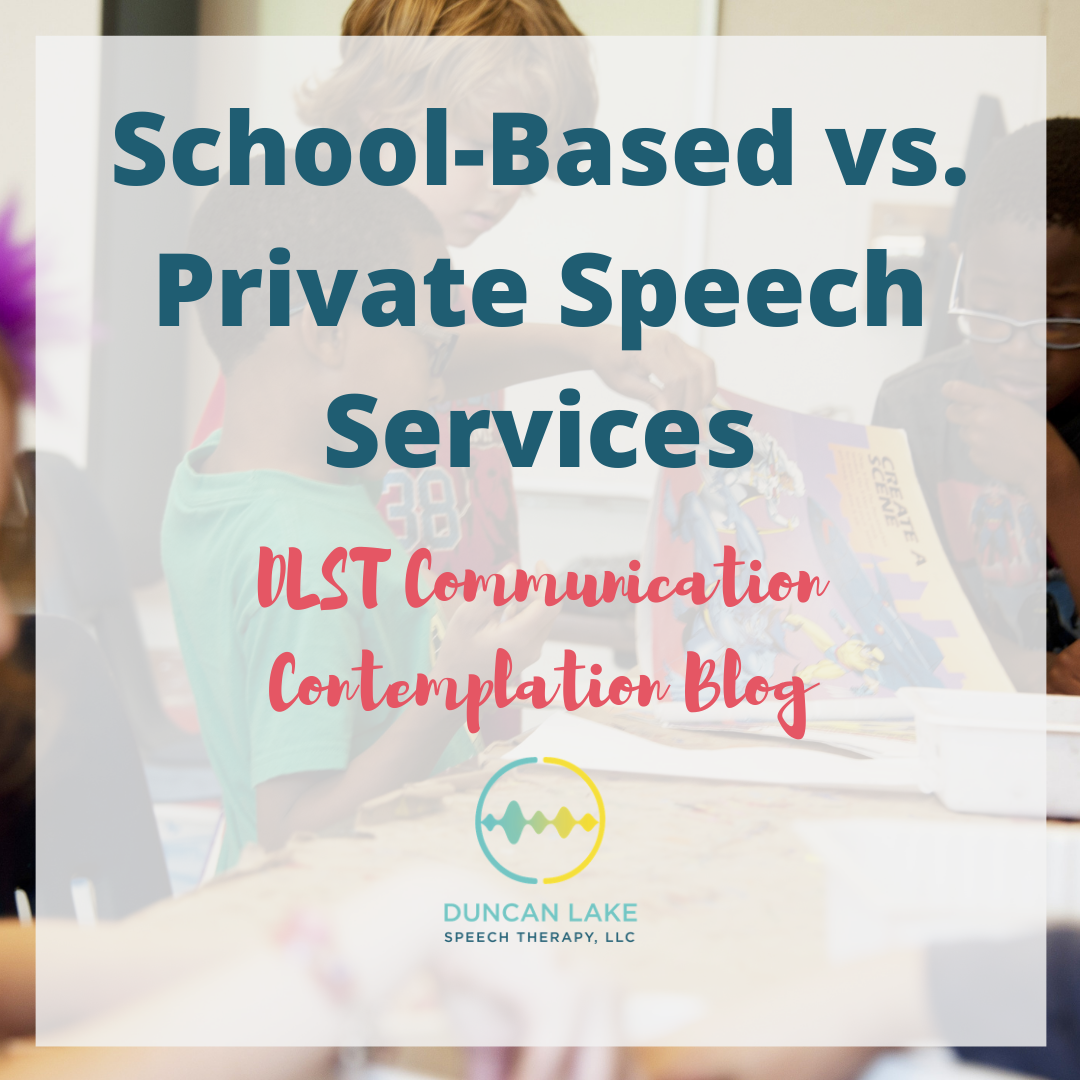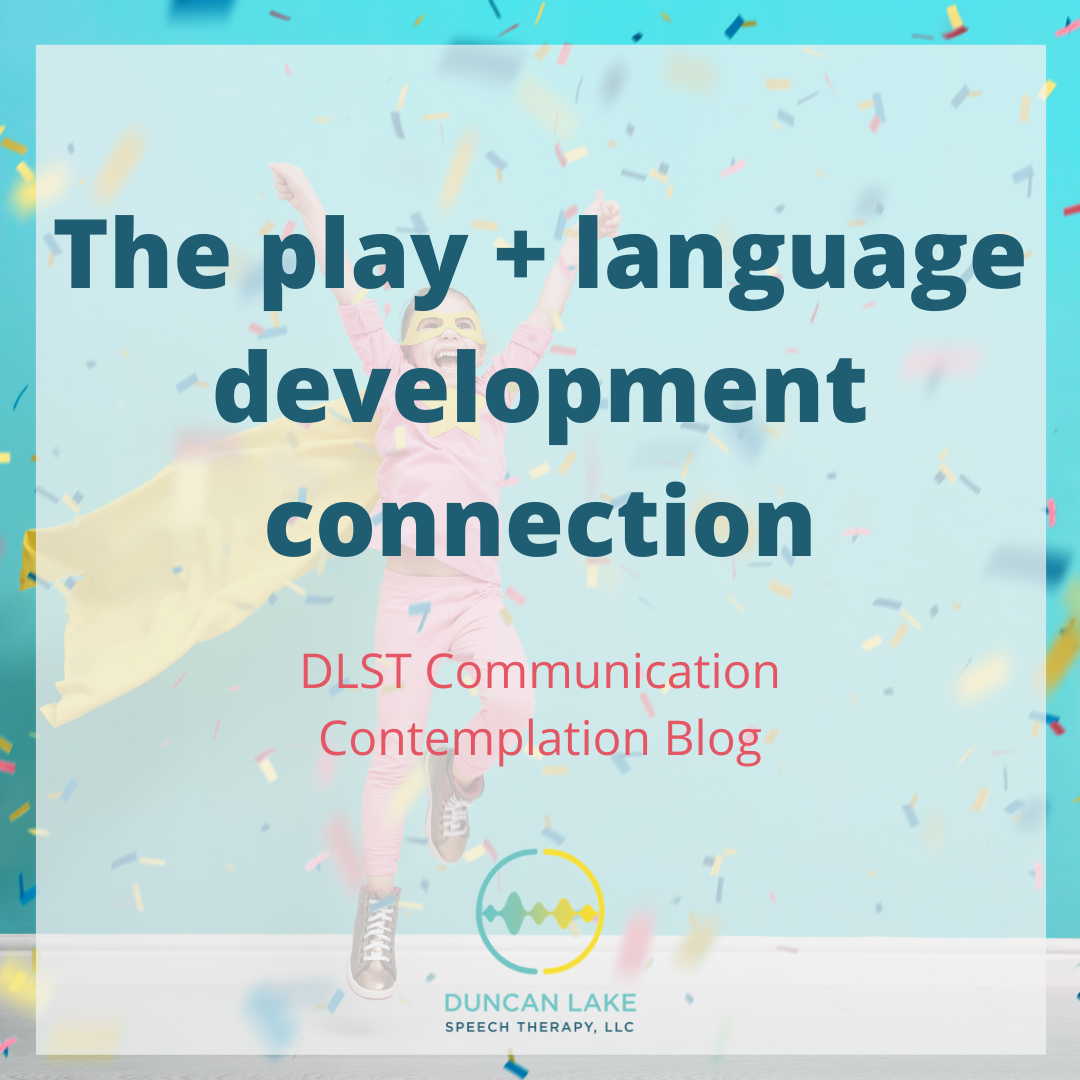
by Tami Teshima | Feb 9, 2021 | AAC, Language Development
I talk a lot about core words on our Facebook and Instagram pages, but what in the world are they and why would anyone teach them? AssistiveWare defines core words as the “50-400 words that make up the majority of everything we say.” There are a bunch of...

by Tami Teshima | Jan 30, 2021 | School-Based Services
A conversation that often comes up when I tell people I’m a speech-language pathologist often revolves around the topic of school-based speech and language services vs. private speech-language services. If you ask around, you’ll find that there are a lot...

by Tami Teshima | Dec 22, 2020 | Language Development
It’s the time of the year toys and play get a lot of attention. Hey, I’m all about it! Play is such a powerful language learning tool, and, above all, is enjoyable for the children. I thought I’d take some time this week do discuss the connection...

by Tami Teshima | Dec 8, 2020 | Language Development
by Tamiko Teshima, M.A., CCC-SLP Practice Owner & Speech-Language Pathologist Duncan Lake Speech Therapy, LLC This time of year, our team is often asked for input on gift giving. Most questions are typically about what toys are best for language development. The...

by Tami Teshima | Oct 13, 2020 | Deaf and Hard of Hearing
Friends, this week we are lucky to have Caitlin Giammona, fellow SJSU alum, and speech-language pathologist and owner of The Signing SLP. Caitlin provides speech and language support to signing deaf and hard of hearing folks, and like us here at Duncan Lake Speech...







Recent Comments